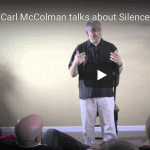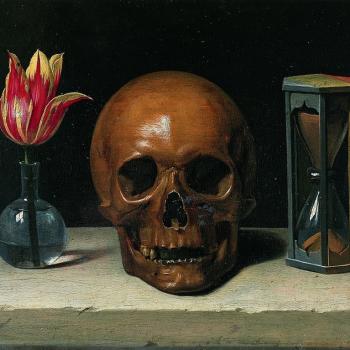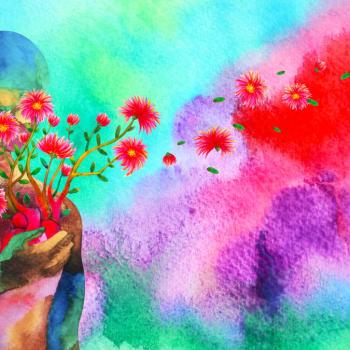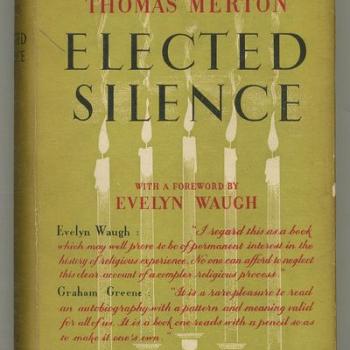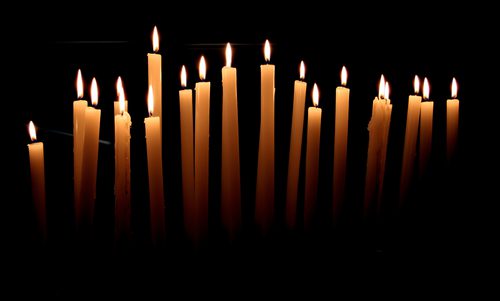 On the day before my 58th birthday, a man who was just a few weeks older than me died. I’ll just call him “H.”
On the day before my 58th birthday, a man who was just a few weeks older than me died. I’ll just call him “H.”
I met H. when we were in the seventh grade. We went to the same church — my family and I were newcomers, joining the small Lutheran congregation after years of no religious observance. H. was the youngest son of a prominent lawyer in town; the family had been members of the church for several years. The pastor’s wife — whom I knew because she taught at the elementary school I attended in 6th grade — made a point of introducing me to H.; I guess she assumed our similarity in age would be enough for us to become friends.
But it didn’t happen. H. was a “cool kid” and I was a nerd. He was athletic, unemotional, socially savvy. I was awkward, slightly overweight, more interested in science fiction than in football.
It didn’t take either of us long at all to figure out that we simply were not interested in one another. His family was upper-middle-class; mine on the middle-t0-lower end. My father was an air force pilot-turned-civil servant who came from a blue collar background. H. wore alligator shirts and khaki pants; I wore jeans and t-shirts. We lived in different neighborhoods and went to different middle schools. We had nothing in common.
There was another boy in the church, named A. He was our age or maybe a year older. He was more outgoing than H., and the two of them were friends; on a few occasions when I found myself in their company, it was obvious who didn’t fit in.
I was clever enough to pick up the subtle social cues that I was not welcomed in their company. But I had no idea what to do about it — other than to feel the shame of being excluded, of not-being-good-enough.
Eventually I got to know other kids in the church, and by the time high school rolled around, H. and I moved in completely different social circles even though now we were in the same school. To be honest, I hadn’t thought about him at all for years. I saw his mother, elderly and infirm, at my dad’s funeral about six years ago. She was very kind to me. I think I asked about H., just to be polite in return. She probably told me what he was up to, but I couldn’t tell you now what she said.
And then I learned the other day that he died suddenly just a few months ago. A heart attack, according to the Facebook post. I scrolled through the remembrances. It was fascinating to see how people had fond memories of the guy. What a good friend he was, always smiling, great fun to be around. Not my experience at all — but I imagine he probably didn’t have the best experience of me, either.
Then I found his obituary online. Yes, I went looking for it. He ended up a military guy, not unlike my dad, but he chose the coast guard. After a couple of decades of active duty, he took a civil service job, and then retired while still in his 50s to a planned community in Florida. And then just a few years into his retirement, he died. Literally days after he turned 58.
The obituary made several vague comments about his love for life, sense of humor, and so forth. It wasn’t particularly well-written; no depth of his personality shone through the clichés. And most telling of all, no mention of any survivors — not a word about a spouse, or children, or anyone else.
That bothered me. Not that it was any business of mine. But if he did have any survivors (I’m sure at least one or two of his siblings are still alive), then how odd the obituary didn’t mention them. And if there weren’t any living relatives, other than the brothers… well, for some reason that thought makes me sad. That a guy in his fifties was living alone in a retirement community.
It’s none of my business, of course, and let’s just hope he was happy and living his dream. But as best I can tell, it was a far cry from any life I would want.
Why do I care?
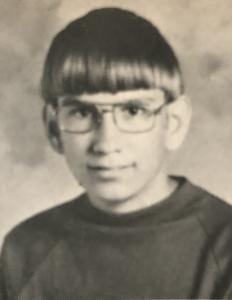
It’s a good question, and I’m not sure the answer myself. Except that, inside my 58-year-old body, a 13-year-old boy, nerdy and self-conscious, still lives — and still doesn’t fully understand why a popular kid wouldn’t give me the time of day. Okay, that’s not true: of course I understand why the popular kids don’t want the nerds hanging around. Why the athletic kids can’t be bothered spending time with the bookworms. Why the self-confident ones really don’t want to be encumbered by the ones who are shy, or anxious, or depressed.
I get all that now. And what really amazes me: forty-five years later, I still am not particularly “affluent” (at least in terms of dollars in the bank), I’m still more socially awkward than most, and I’m still more book-nerd than jock. But — thanks be to God — I’m a lot more self-confident, a lot less depressed and anxious, than I used to be. My life is quirky and unique — “mysticism blogger” was never on the list of career choices given to me in school — and I have a wonderful marriage, plenty of meaningful friendships, and a life I am happy to be leading.
So why am I feeling sad over the death of a man who never quite was a friend, and who I hadn’t even thought about in years?
Perhaps I’m sad because I think it’s a shame that socioeconomic distinctions can get in the way of friendships, both for teenagers and for folks at any point in life. Maybe I’m sad because being reminded of H. reminds me of the insecure misfit I once was, and reminds me how it didn’t feel good to be rejected and left out. And maybe, deep down inside, I’m sad because I never got to show off to someone like H. how well my life has turned out. Yes, that last reason is nothing to be proud of. But I suspect it’s lurking in there somewhere.
And I suppose, truth be told, I’m sad because H.’s death is just a sober reminder of my own mortality. God willing, I seem to be healthy enough, and my family history in regard to heart disease is pretty good, so I’m probably not going to drop dead any time soon. But one never knows.
Monks of ages past thought it a good and pious practice to remember one’s own mortality. That could easily become some sort of macabre fetish. But I think a healthy respect for the fact that life has limits is probably a good thing. It’s just tough to be reminded of it with the death of a peer. And for some mysterious reason, that stings just a bit more than usual when the “peer” was somebody I didn’t like, and who as best I could tell didn’t like me.
H. was not my enemy (he didn’t care enough about me to hold any animosity toward me), but he certainly wasn’t my friend either. I guess in terms of Christian language, we were merely “neighbors.” But he was a neighbor whom I failed to love. I don’t like being reminded of that. But hopefully it can spur me to be a more loving person, at least for today and tomorrow.
Rest in peace, H.
Enjoy reading this blog?
Click here to become a patron.



